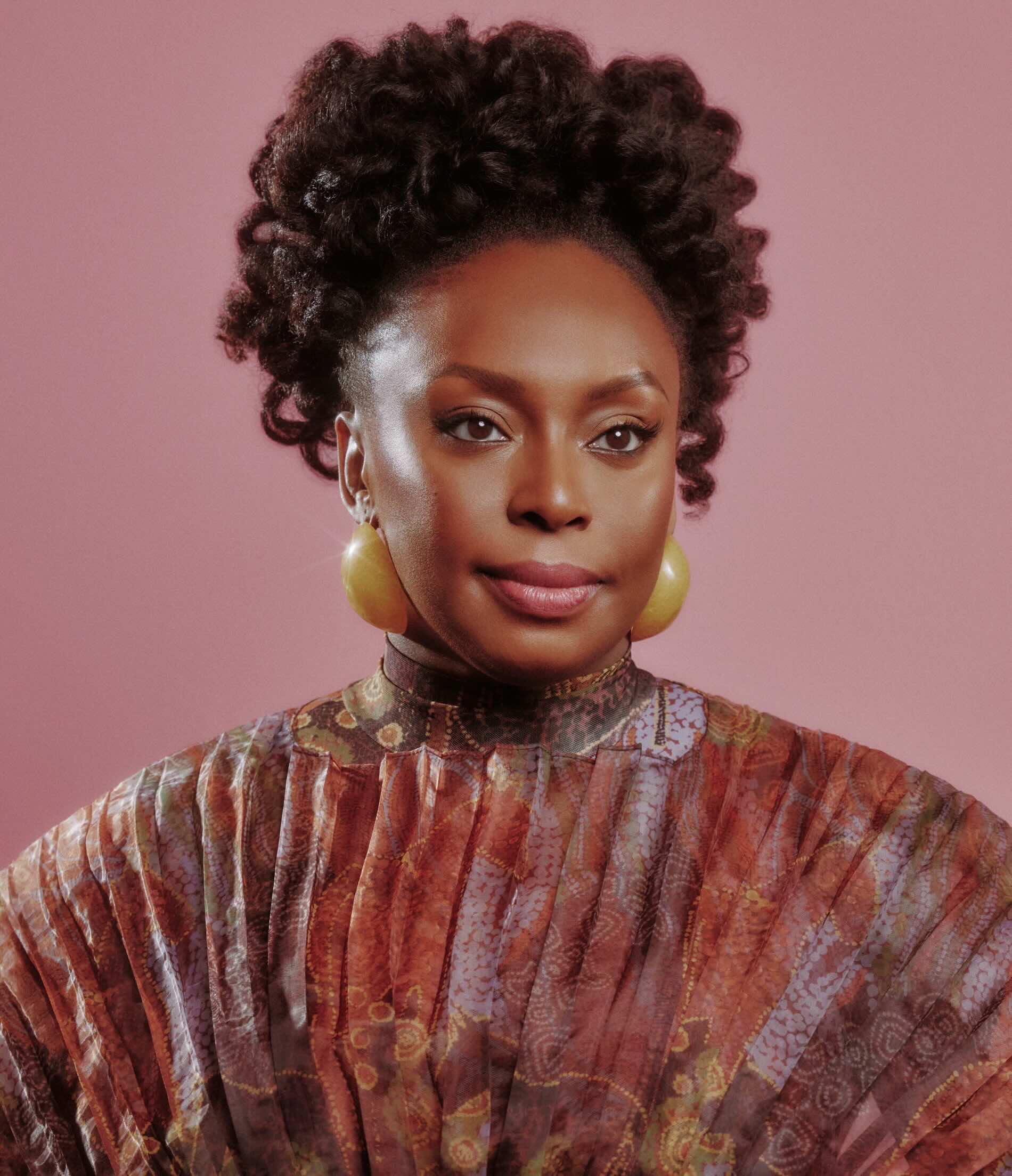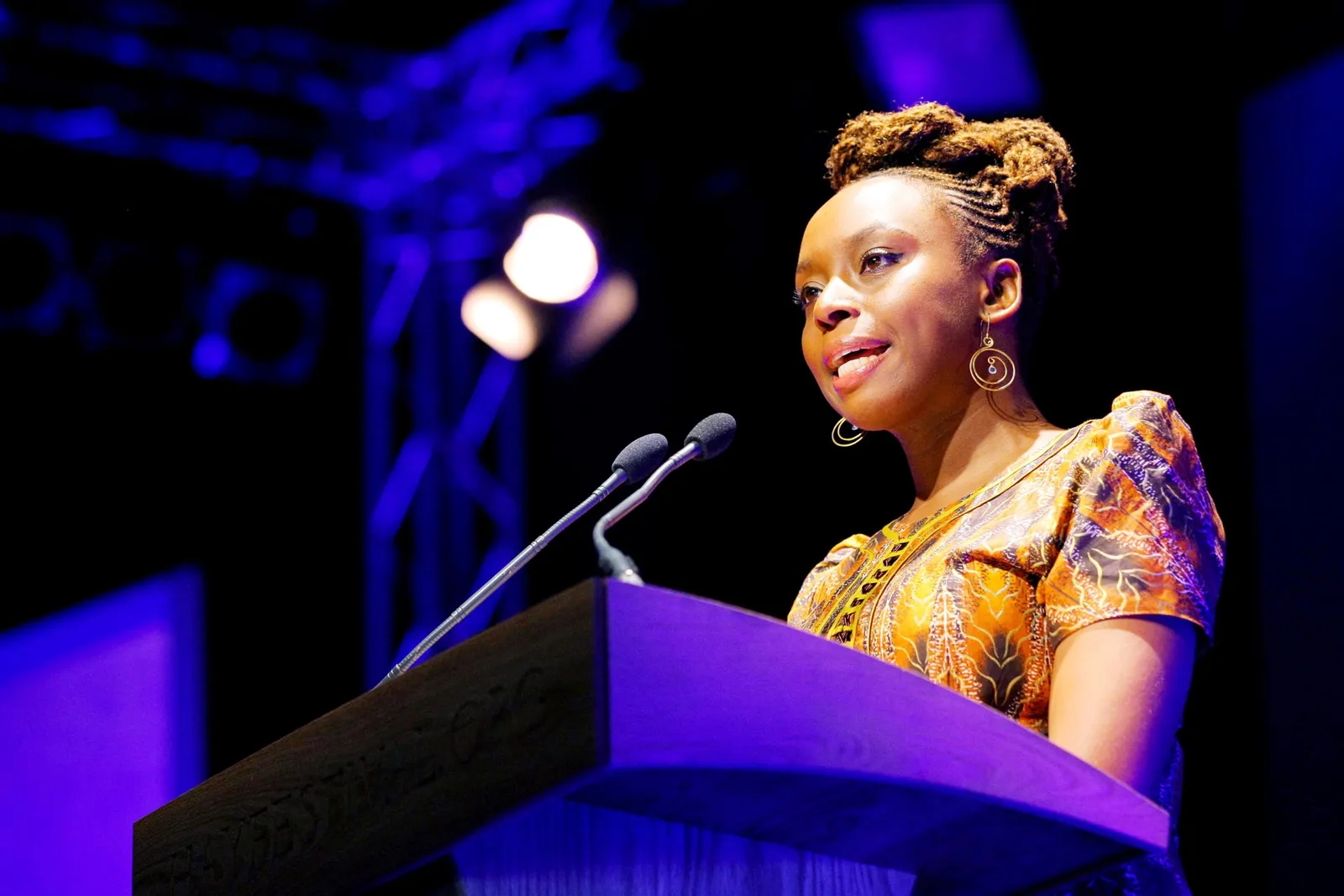
From her beginnings in Nsukka to becoming one of the most influential literary voices of our time.
From her beginnings in Nsukka to becoming one of the most influential literary voices of our time.
On the leafy campus of the University of Nigeria, Nsukka, a young girl grew up surrounded by books, academics, and stories waiting to be told. That girl, Chimamanda Ngozi Adichie, would go on to become one of the most celebrated voices in contemporary literature. Today, her name resonates not just in classrooms and libraries, but on stages, in boardrooms, and across social movements around the world.
Born in 1977 in Enugu and raised in Nsukka as the fifth of six children, Chimamanda inherited the intellectual atmosphere of her home. Her father was a professor of statistics, her mother the university’s first female registrar, a household steeped in education and discipline.
It was here that she first encountered Chinua Achebe’s Things Fall Apart, a novel that would change everything. For the ten-year-old Chimamanda, Achebe’s story revealed a radical possibility: that someone like her, with her skin, her people, her village, could belong in the pages of a book. That seed would grow into a literary career that continues to reshape the global imagination.
Chimamanda’s path was anything but linear. She began studying medicine at the University of Nigeria before deciding, at nineteen, to move to the United States. There she earned a degree in Communication and Political Science, then went on to study Creative Writing at Johns Hopkins and African History at Yale. If Nsukka gave her the grounding, America gave her the distance a lens to see Nigeria anew, and to explore themes of migration, identity, and belonging that would soon define her work.

Her first novel, Purple Hibiscus (2003), was an audacious debut. Set against the backdrop of a politically fragile Nigeria, it was also an intimate family story, capturing both tenderness and brutality. The book earned her the Commonwealth Writers’ Prize and announced her as a new force in African literature.
Then came the novel that would cement her place on the world stage: Half of a Yellow Sun (2006). With unflinching humanity, Adichie revisited the Biafran War, an event that scarred her nation and shaped her family’s history. The book won the Orange Prize for Fiction in 2007 and later the “Best of the Best” Women’s Prize of the Decade, hailed as one of the most important novels of the 21st century.
Her storytelling only grew sharper. The Thing Around Your Neck (2009) offered a mosaic of short stories exploring the Nigerian immigrant experience, while Americanah (2013) took on race, love, and the complexities of living between continents. That novel not only earned the U.S. National Book Critics Circle Award, it also became a cultural touchstone, discussed in book clubs and classrooms, referenced by Beyoncé, and cited as a work that helped young Africans in the diaspora see themselves with fresh clarity.
Albeit, Chimamanda is more than a novelist; she is a cultural voice. Her TED talk, The Danger of a Single Story, is one of the most-watched talks of all time, exposing how narrow narratives reduce whole peoples to caricatures. Another, We Should All Be Feminists, adapted into a bestselling essay, ignited global conversations on gender equality and found its way into everything from UN campaigns to pop music.
Beyond the spotlight, she has worked quietly to nurture others. Through the Farafina Trust Workshop, she has mentored young Nigerian writers, building a bridge for the next generation to step onto the world stage. Her essays—Dear Ijeawele on raising feminist children, Notes on Grief written after her father’s passing, and her latest novel Dream Count (2025) show her range and her refusal to be boxed in.
Recognition has followed in abundance: the MacArthur “Genius Grant” in 2008, more than a dozen honorary doctorates from universities like Yale and Harvard, and membership in the American Academy of Arts and Sciences.
However, Chimamanda’s true legacy is not the awards. It is the conversations she has started and the identities she has helped affirm.
For Nigerians at home, she is proof that our stories matter that our history is not just pain, but art, resilience, and brilliance. For Nigerians in the diaspora, her work bridges continents, offering a language for the tensions of migration and the longing for home. She has become a cultural diplomat, reshaping how the world sees Nigeria and how Nigerians see themselves.
Chimamanda Ngozi Adichie writes with the urgency of someone who knows that stories save lives, shape nations, and build futures. From Nsukka to New York, from the classrooms of Enugu to the stages of TED, she continues to remind us that the Nigerian voice is not marginal but central, not secondary but essential. In doing so, she has become not just a writer of novels, but a writer of destiny hers, ours, and generations to come.
Comments